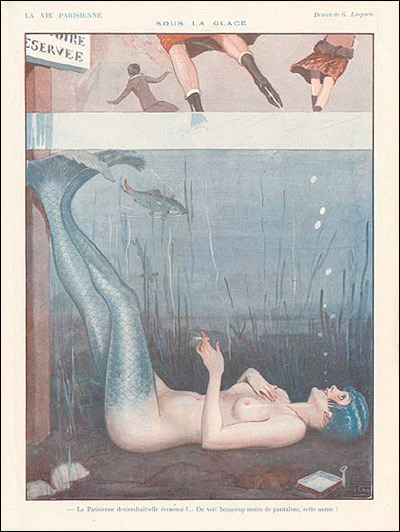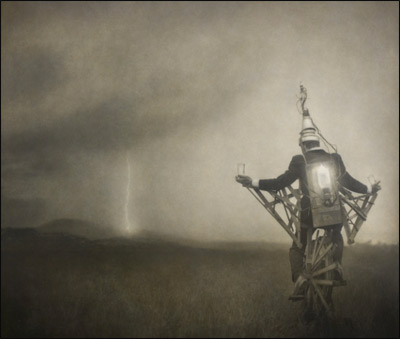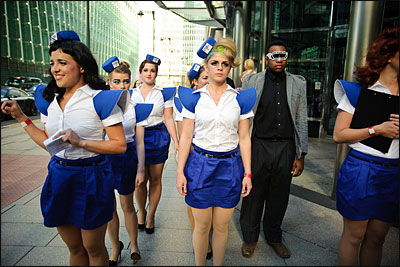
Any form of inquisition into the meaning of this will be fruitless. Favour me, an’ you will, with eternal confinement in a gaol, and everything that I now relate will be repeated with perfect candour.
Again I say I do not know anything at all about it, which is probably why I am making it the subject of this narrative. It is true that I have been for 18 years his closest friend and that we have been seen by reputable witnesses near Greenwood, NY, Sleepy Hollow by the Hudson, Mt. Auburn, Cambridge, Mass., and Grant’s Tomb, Manhattan, but that we possessed tastes mutually morbid or a predilection for graveyards I must strenuously deny.
I seem to remember a weird evening in November. The place was, of course, a cemetery; over the fence peered an inquisitive, waning, crescent moon, and on the fence a vulture and his vulturine, a raven and a couple of cormorants remained couchant.
Thus opens Falco Ossifracus, a short, witty H.P. Lovecraft parody written by fellow amateur journalist Edith Miniter. Published under the nom-de-plume “Mr. Goodguile,” the piece first appeared in Miniter’s zine, The Muffin Man, in 1921. The piece lampoons Lovecraft’s meandering, loquacious writing style and obsession with the macabre, though sadly it is not a parody of Cthulhu Mythos, and the setting remains confined to a graveyard. Lovecraft described the effort as “a highly amusing parody” in his memoir of Miniter, in which he also credited her as the source of the Whipoorwill legend from The Dunwich Horror while praising her “sharp insight, subtle wit, rich scholarship, and vivid literary force.”
Of their relationship, Lovecraft scholar Chris Perridas wrote, “one suspects a pre-Sonia romantic attachment by HPL of Miniter, though obviously never acted upon.” But if this hubristic letter to a friend in which Lovecraft brags about the ladies in his life (“Hell, how the cats fight!”) is to be believed, the affection appears to have been entirely one-sided.
Falco Ossifracus can be found in the Miniter short-story anthology Dead Houses, available from Hippocampus Press. Reprinting the entire story would be copyright infringement, and getting the book is recommended. Several more choice quotes, below:
- “As he spoke he pleasantly indicated a ladder dripping with ichor, whatever that is, and bordered by encrustations of nitre. I most wish now I’d made this a poem.”
- “My attention was arrested by the hurried passing of a completely articulated skeleton, holding his nose, from whence the bright blue blood of a Colonial governor streamed. And this was rather unique, because he had no nose! Meaning to employ a phraseology which my readers will at one recognize as the ommon and natural expression of frequenters of tombs, ‘How’s his nibs’? I inquired. Unfortunately, a slight nervousness changed the ‘n’ to ‘r’, and the offended subject disappeared without replying.”
- “Iacchus Smithsonia – the name was originally John Smith, but it is always my will that my friends bear a name of my choosing and as cumbersome a one as possible.”
For a more modern take on the H.P. Lovecraft parody (of which there’ve been several throughout the ages), see @_hp_lovecraft_ on Twitter.



















